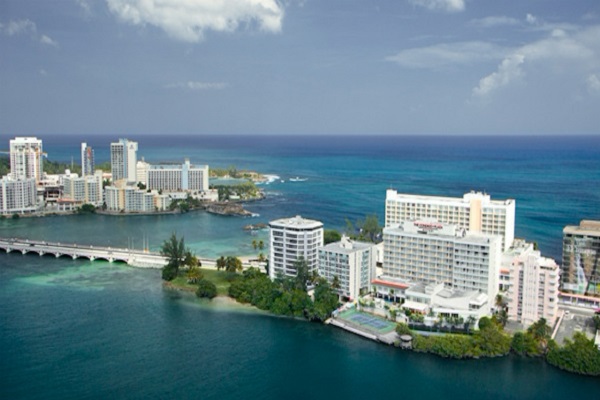[The Footsteps of the Recovery, treading on the Sahara]
The Lord’s recovery in Africa – report of propagation in South Africa (1)
*South Africa has possibly 70 to 80 percent of the entire country’s
population on record as Christians. Many believe in the Lord on one hand
and worship idols on the other. This is their so-called “Trusting in God.”
The African people’s state of mind and the propagation status
The Africans differ greatly in many ways from the Taiwanese in terms
of outlook, sense of value, and culture. Because of the low quality of
life, the majority of people only look at the immediate things and only
take care of the current day. Historically, Africans have been influenced
predominantly by Europeans, resulting in their obvious inferiority
complex, making them feel lower in rank than others, resigning
themselves to a lifelong destiny of working for others, of receiving help
from others. Conversely speaking, however, the feeling of inadequacy
in strength, being unable to accomplish anything, has made them more
willing to trust in God, as seen in the percentage of Christians on record
in South Africa, possibly reaching 70 to 80% of the entire country’s
population. Many believe in the Lord on one hand and worship idols
on the other. This is their so-called “Trusting in God.” They are very
superstitious, believing in polytheism, and worshipping any and every
idol.
Currently, the Lord’s recovery in Africa is concentrated in a few
countries that are propagating intensely, including Ethiopia, Ghana,
and South Africa. The propagation of the churches in these three
countries has been going on for a long time; therefore, the work is on a
larger scale and the number of saints is more stable. The geographical
locations of these three countries form a triangle. Air travel to and from
each of these countries takes about six hours. Because of the expensive
air fare – the price of a plane ticket from South Africa to Ethiopia is the
same as a ticket from Taiwan to Nagoya – the three countries seldom
move together in their propagation. On the entire African continent,
Ethiopia and Ghana combine to form a boundary, north of which the
Islamic faith prevails, and south of which the Christians are in the
majority; Catholics do not have a big number.
At present, there are ten local churches in South Africa, with a total
attendance of 400 people. Ethiopia has 18 churches, with about 700
saints; Ghana has approximately 500 saints. In addition, Nigeria is also
propagating, but because of the unfavorable peace and order situation,
the gospel work has been restricted. Zambia and Zimbabwe, although
not economically stable, each has two couples who moved there this
year for propagation. Among these countries, South Africa has the
highest standard of living, the costliest goods and products, and even
pricier accommodations than those in the U.S. The present center of the
work is the holding two annual ministry conferences in the capital city,
Pretoria, scheduled in March and September.
[The Footsteps of the Recovery, treading on the Sahara]
[The Footsteps of the Recovery, treading on the Sahara]
The Lord’s recovery in Africa – report of propagation in South Africa (1)
*South Africa has possibly 70 to 80 percent of the entire country’s
population on record as Christians. Many believe in the Lord on one hand
and worship idols on the other. This is their so-called “Trusting in God.”
The African people’s state of mind and the propagation status
The Africans differ greatly in many ways from the Taiwanese in terms
of outlook, sense of value, and culture. Because of the low quality of
life, the majority of people only look at the immediate things and only
take care of the current day. Historically, Africans have been influenced
predominantly by Europeans, resulting in their obvious inferiority
complex, making them feel lower in rank than others, resigning
themselves to a lifelong destiny of working for others, of receiving help
from others. Conversely speaking, however, the feeling of inadequacy
in strength, being unable to accomplish anything, has made them more
willing to trust in God, as seen in the percentage of Christians on record
in South Africa, possibly reaching 70 to 80% of the entire country’s
population. Many believe in the Lord on one hand and worship idols
on the other. This is their so-called “Trusting in God.” They are very
superstitious, believing in polytheism, and worshipping any and every
idol.
Currently, the Lord’s recovery in Africa is concentrated in a few
countries that are propagating intensely, including Ethiopia, Ghana,
and South Africa. The propagation of the churches in these three
countries has been going on for a long time; therefore, the work is on a
larger scale and the number of saints is more stable. The geographical
locations of these three countries form a triangle. Air travel to and from
each of these countries takes about six hours. Because of the expensive
air fare – the price of a plane ticket from South Africa to Ethiopia is the
same as a ticket from Taiwan to Nagoya – the three countries seldom
move together in their propagation. On the entire African continent,
Ethiopia and Ghana combine to form a boundary, north of which the
Islamic faith prevails, and south of which the Christians are in the
majority; Catholics do not have a big number.
At present, there are ten local churches in South Africa, with a total
attendance of 400 people. Ethiopia has 18 churches, with about 700
saints; Ghana has approximately 500 saints. In addition, Nigeria is also
propagating, but because of the unfavorable peace and order situation,
the gospel work has been restricted. Zambia and Zimbabwe, although
not economically stable, each has two couples who moved there this
year for propagation. Among these countries, South Africa has the
highest standard of living, the costliest goods and products, and even
pricier accommodations than those in the U.S. The present center of the
work is the holding two annual ministry conferences in the capital city,
Pretoria, scheduled in March and September.



